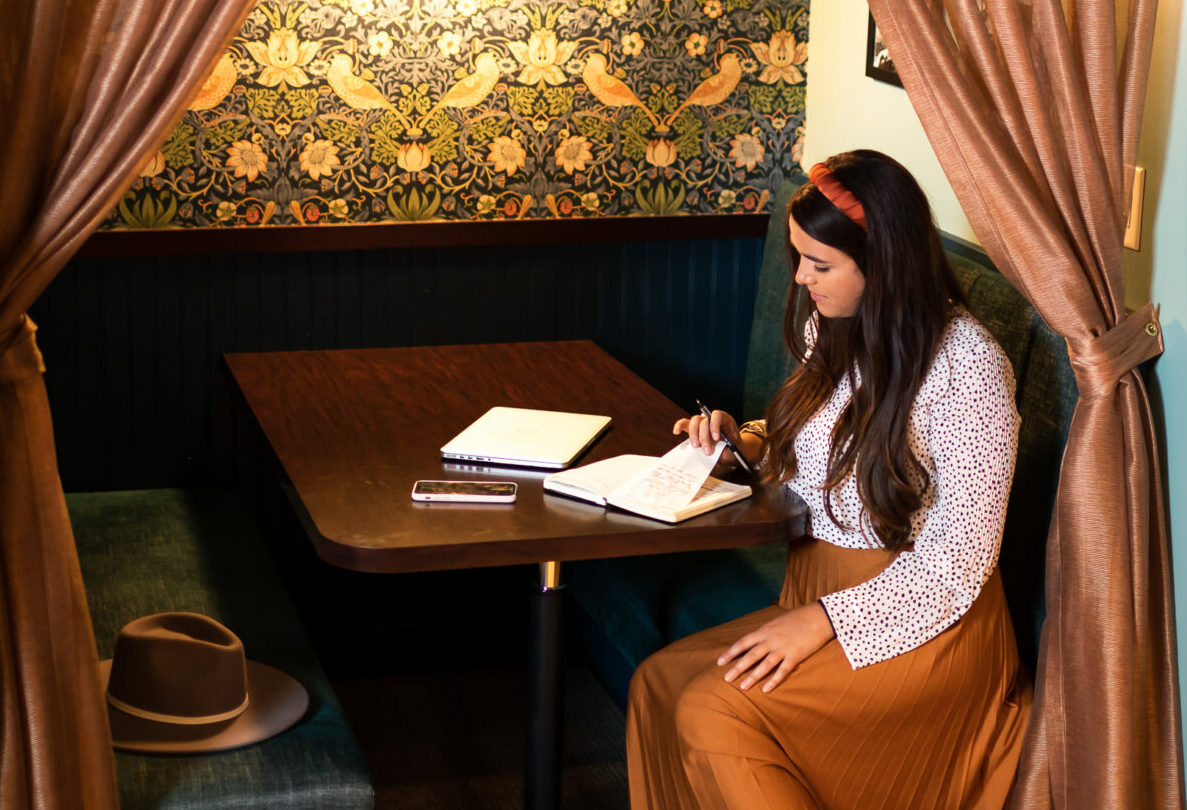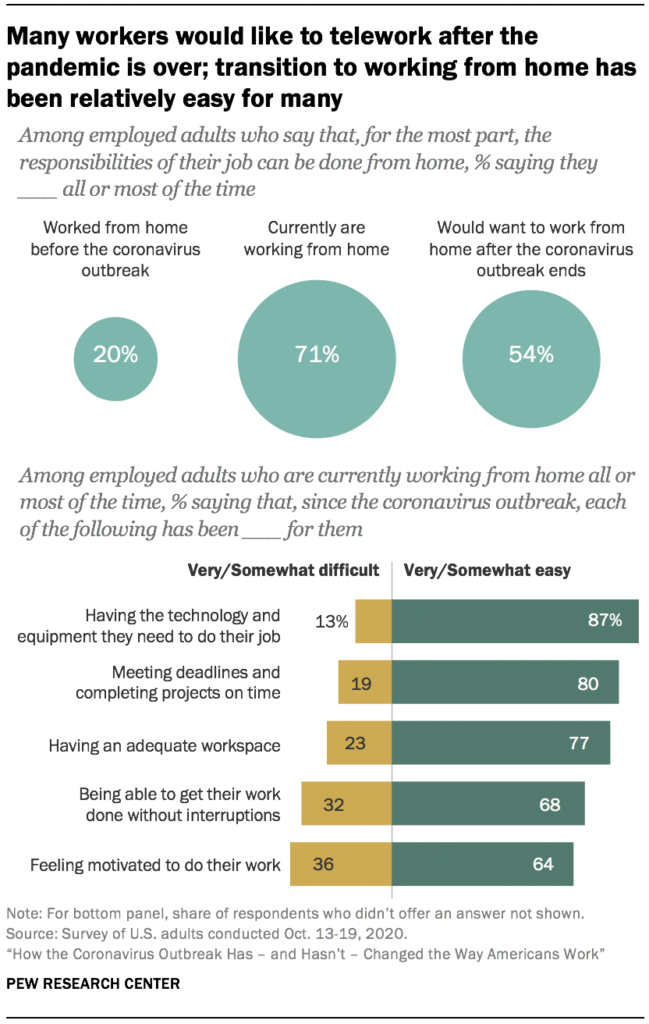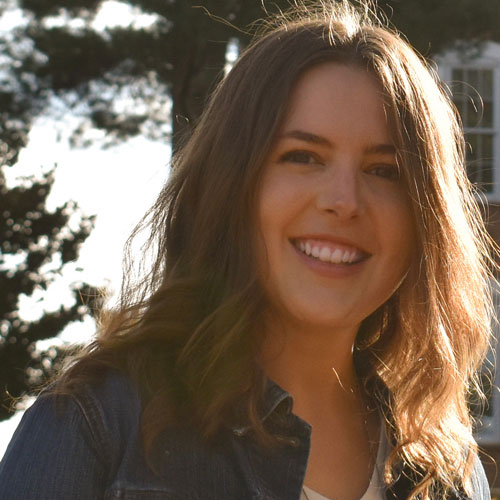
As I write this, the sun is poking through my secondhand beige curtains. Coffee is brewing, filling my small home with the smell of productive beginnings. My cat purrs peacefully nearby. The dishwasher runs in the kitchen, just a few feet away from my dining room table and workspace. I’m not worried about anything that’s happening anywhere else. I have what I need, right here, right now, enough to let my mind center solely on what’s in front of me – my work.
My space isn’t glamorous. It’s functional. It’s home. Over the last year and a half of making my home my workspace, I have felt more creative, more focused, and more productive. Whether this is due to the virtually endless coffee or simply the comfort of having nearly everything I need at arm’s length is debatable, but one thing is for sure – my space is mine. That makes it work for me so that I can work in it.

Graphic by Pew Research Center
Big space, little control
I know I’m not the only one whose productivity is closely tied to my surroundings, which, when in a traditional office setting, are largely out of one’s control. It’s a challenge for an employer to match personal preferences of every single employee in order to maximize their individual productivity, which may be why so many are unhappy when working in the office. Take temperature, for example. One CareerBuilder study found that 53% of surveyed employees are less productive when their work environment is too cold. Between comfort, social interactions, schedules, and more, the office simply cannot match up with everyone’s expectations. Perhaps this is just one reason that a Gallup poll revealed that 85% of employees are not engaged when working at work.
But kudos to our employers for trying their best. In the mid-20th century, architects like Frank Lloyd Wright began to criticize previously standard office setups that included dividing walls and closed-off rooms, inspiring a wave of office transformations. The new open office was intended to break down the social walls that divide workers by breaking down the physical walls too. While these designs do provide some benefits like increased physical activity and more collaboration, critics accuse open office spaces of “destroying the workplace,” ruining coworker relationships, reinforcing a misogynistic desire to impose the male gaze on women, and making employees feel anonymous and replaceable.
Now, a new shift in the workspace has occurred. COVID-19 shut down most of the world’s in-person offices. A Pew Research study reported that at the end of 2020, more than 70% of those that were previously working in offices were working from home. More than half of those surveyed hope to stay that way. Notably, there is a clear class divide between those with the option to work from home and those who couldn’t. Nearly 60% of American workers pre-pandemic were in jobs that could not be performed remotely, and most of that group is Hispanic or an immigrant.
Your workspace should be your call
If you are an individual that’s afforded the privilege of determining your own work setup or are just looking to advocate for better work conditions, it can be challenging to figure out exactly what works best for you.
I recommend starting with a quick self scan. What do you see? What do you hear? What do smell? If any of the things you’re sensing are causing negative emotions, can you change them? If you’re able, consider making some upgrades. Anything from putting on noise-cancelling headphones to redoing your home office can have a subtle, yet powerful effect on how you feel, and therefore how you work.
Most importantly, advocate for yourself. You deserve to feel safe, comfortable, and productive wherever you work. Not only is making sure you’re good at your job good for your employer’s bottom line, it’s good for you.
Here’s hoping that workspaces continue to change for the better.

Julia Regeski
Social Impact Strategist
Julia Regeski is a content creator who believes that everyone's story deserves to be told in a way that's intentional, compelling, and authentic. Her work experience has been focused on advancing meaningful social causes, and includes advocating on behalf of Georgia's environmental resources and bringing together nonprofits in the wake of natural disasters. When she's not using her communications skills to try to make the world a better place, you'll likely find her reading, practicing yoga, or adventuring in the great outdoors.
